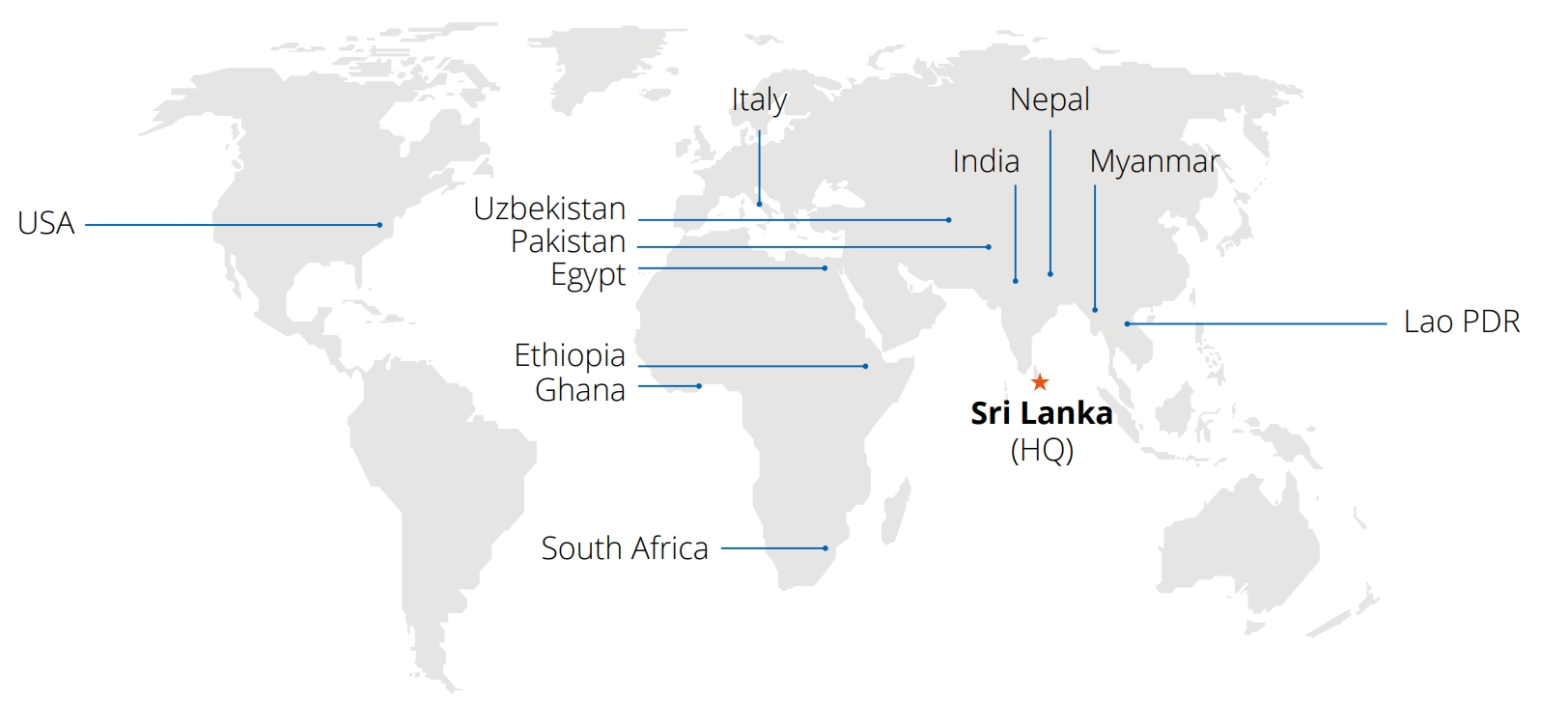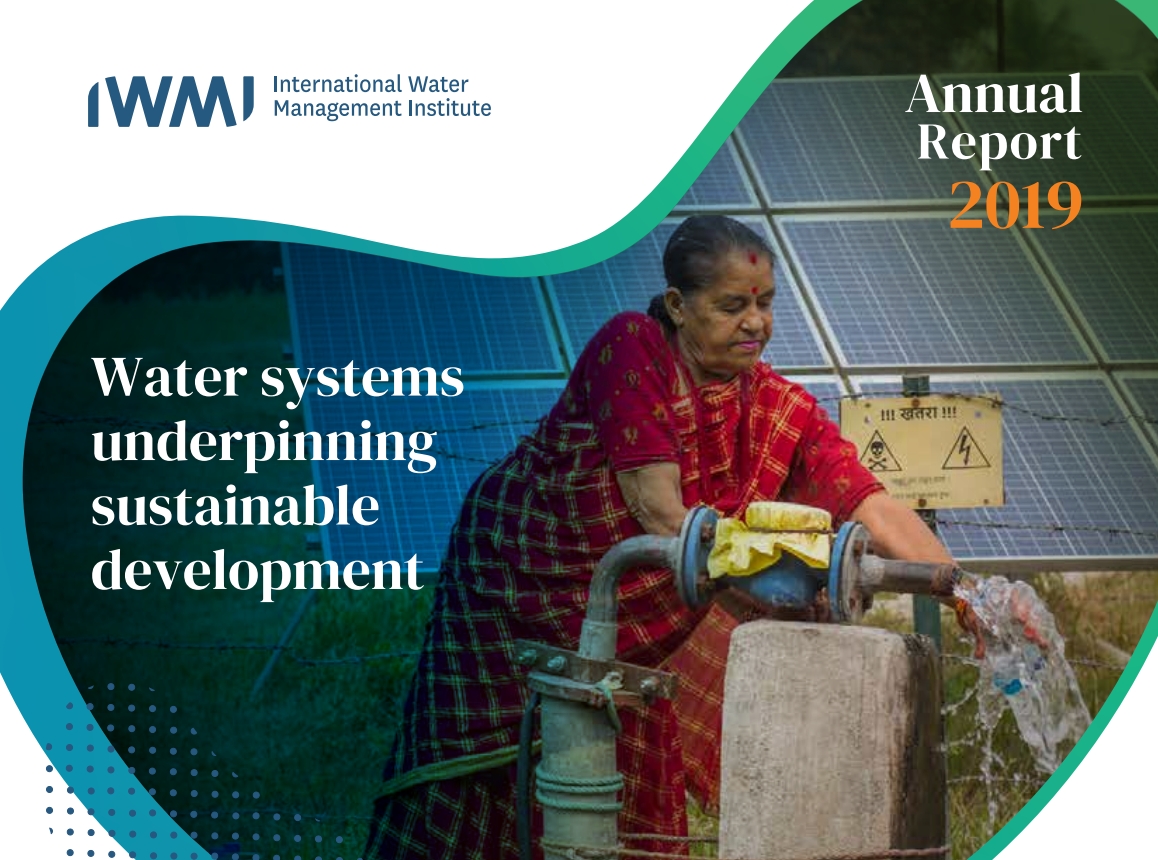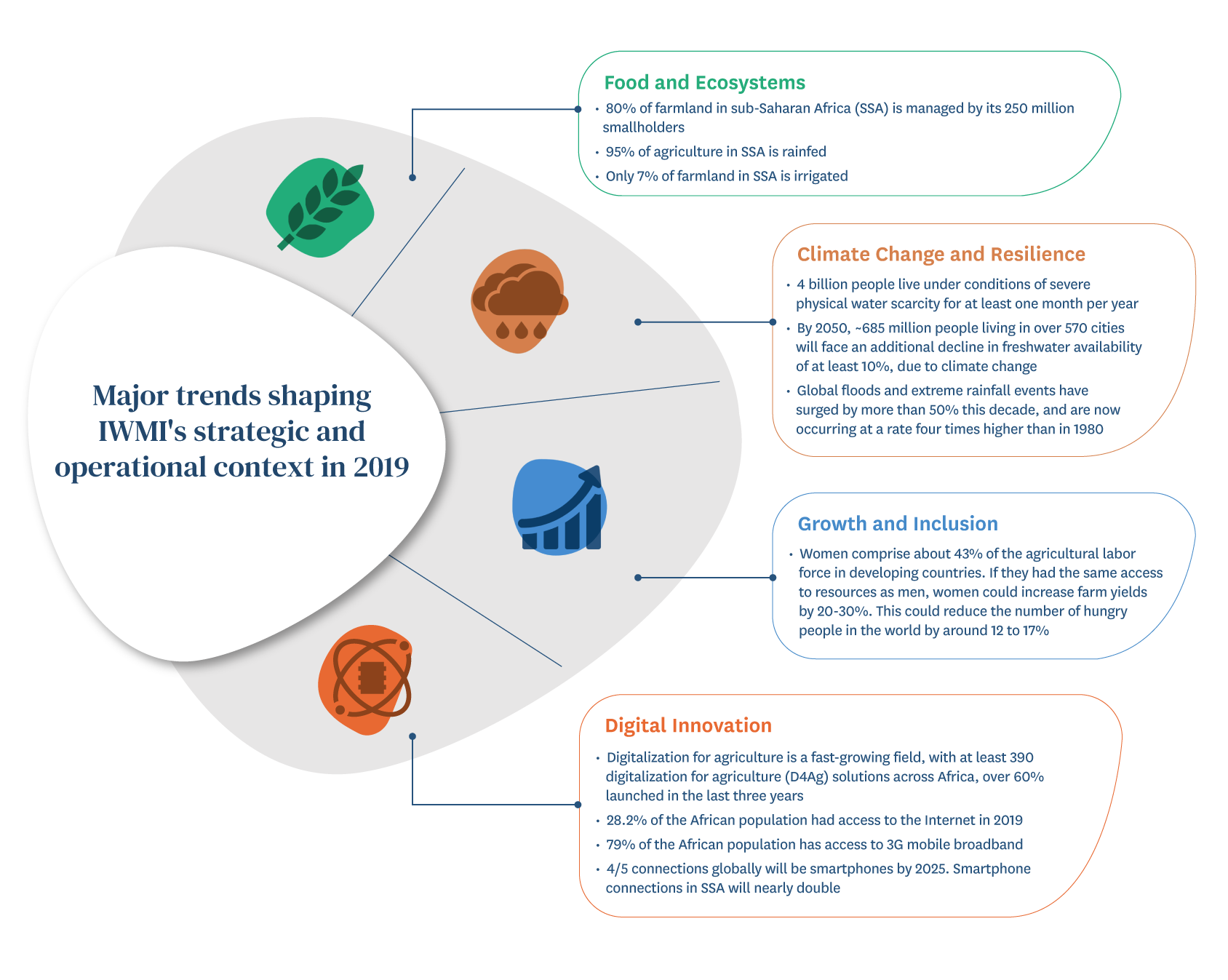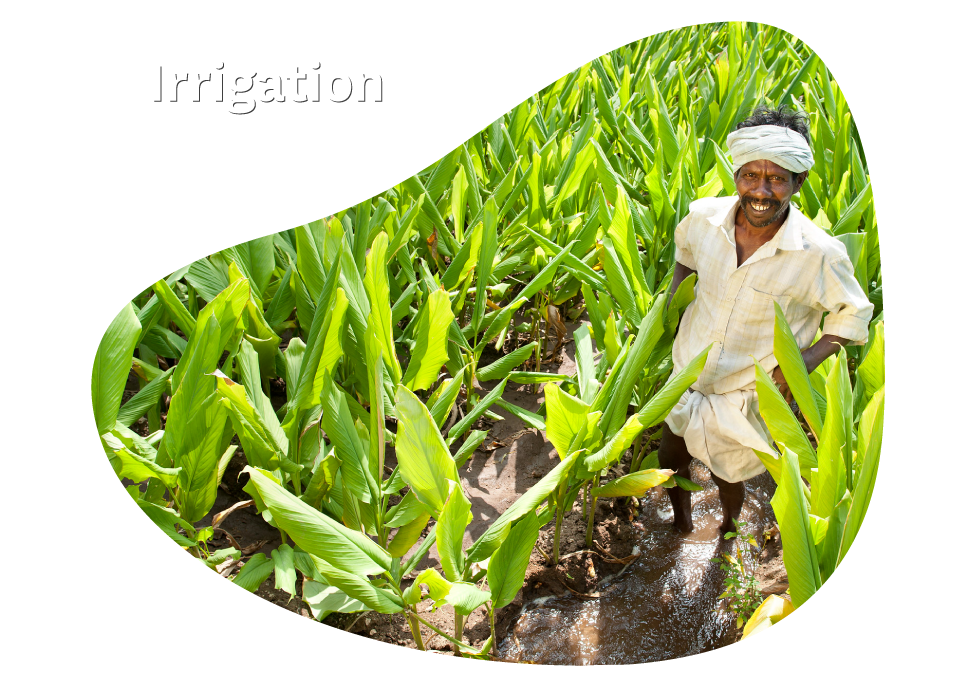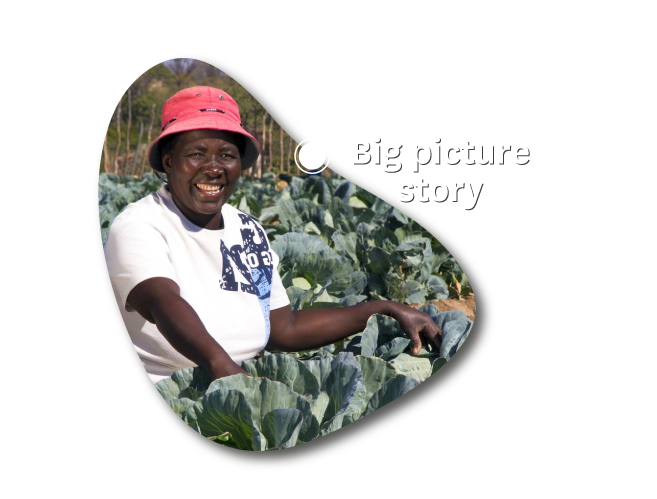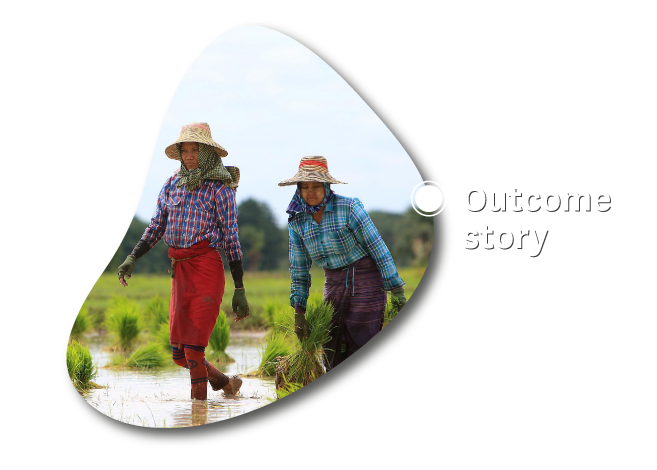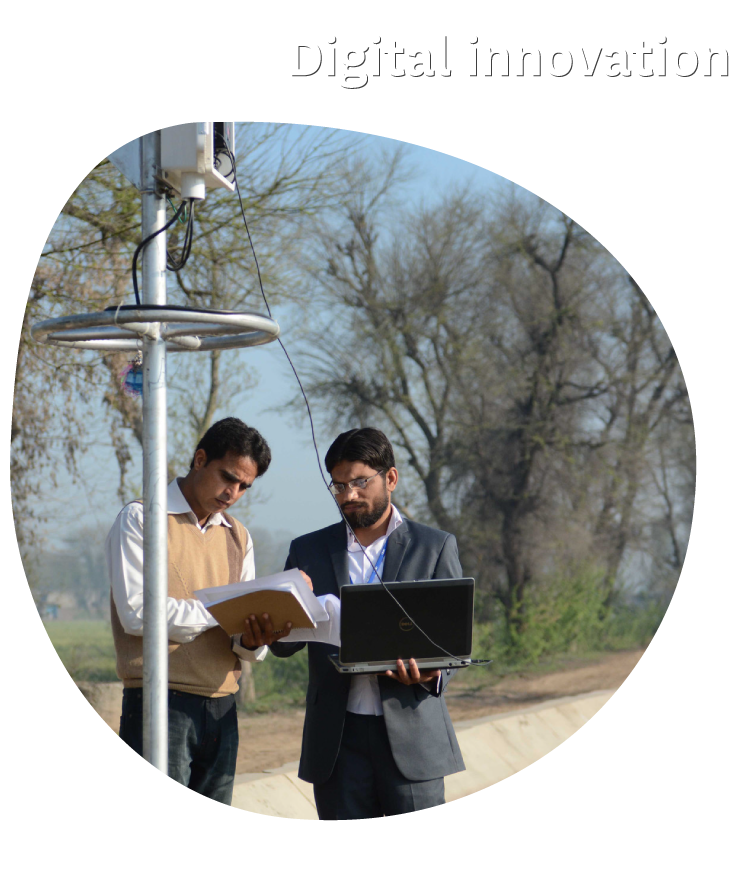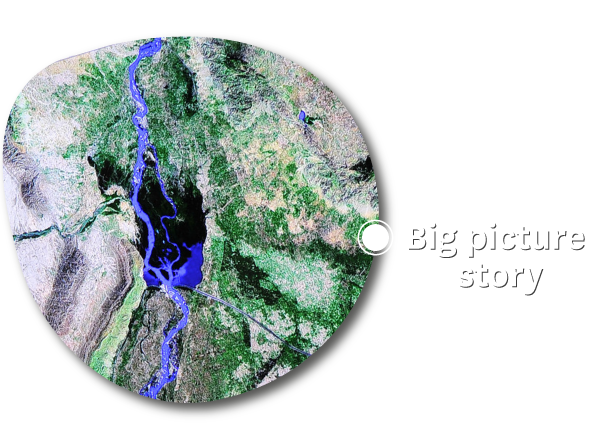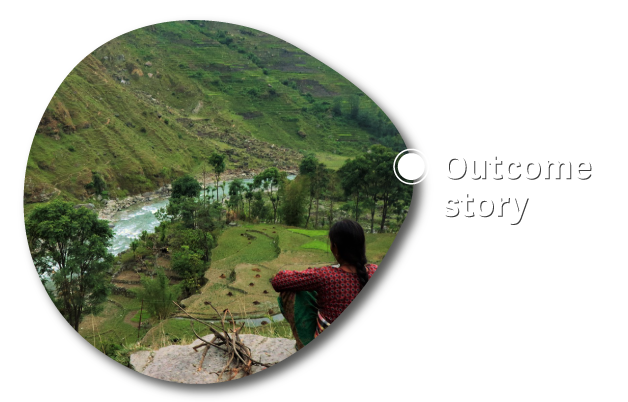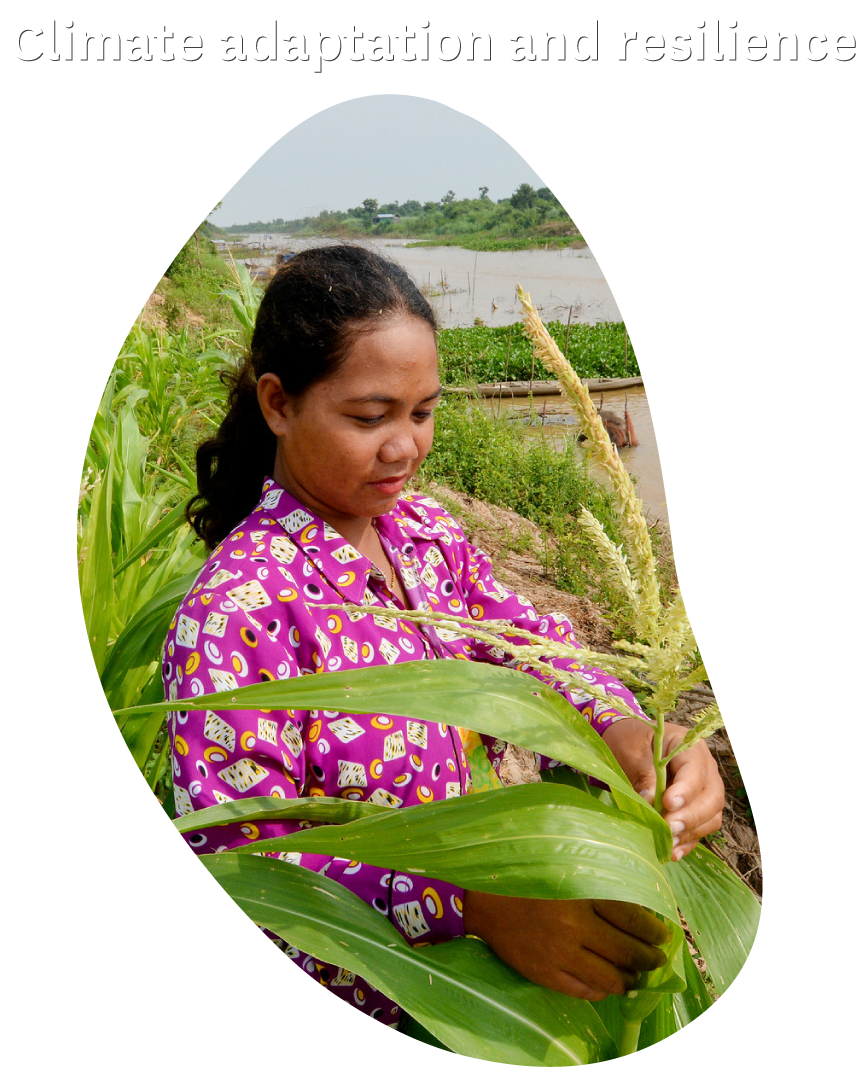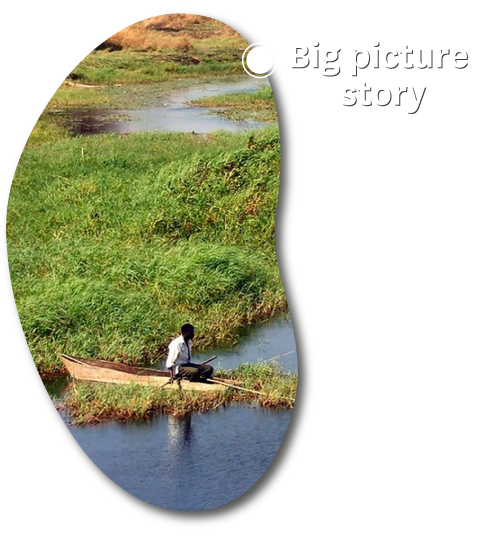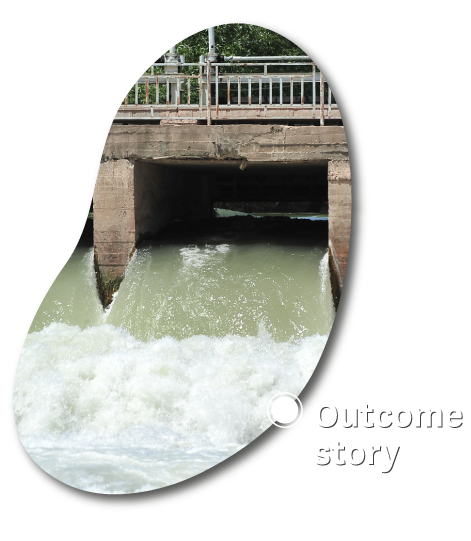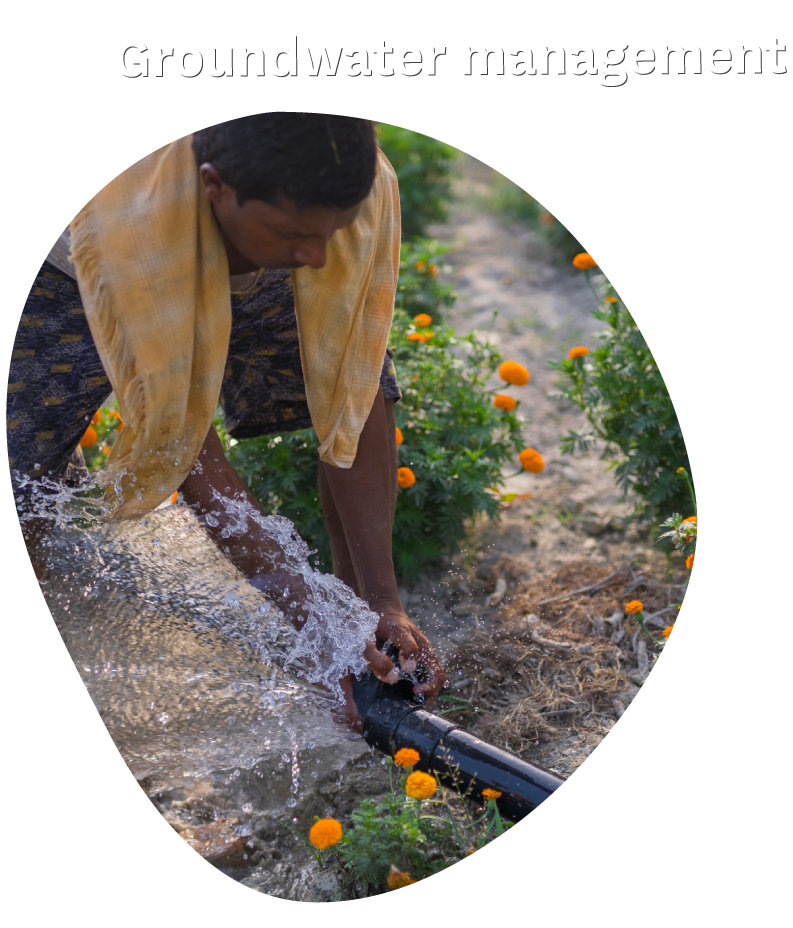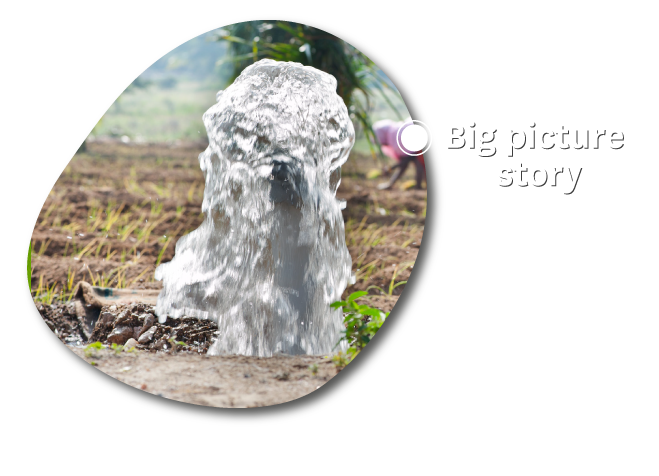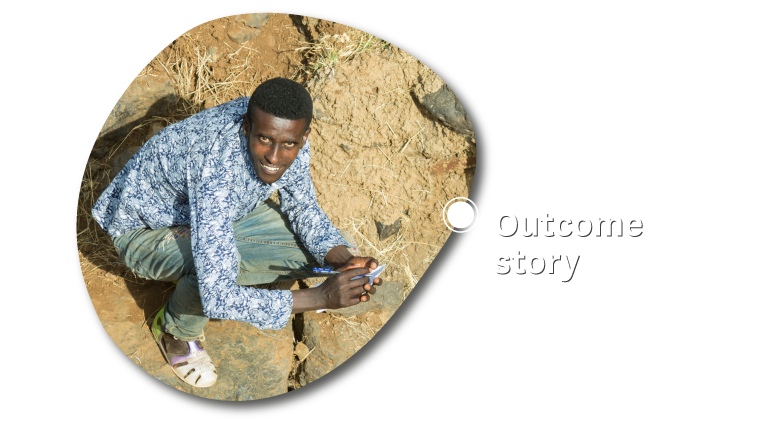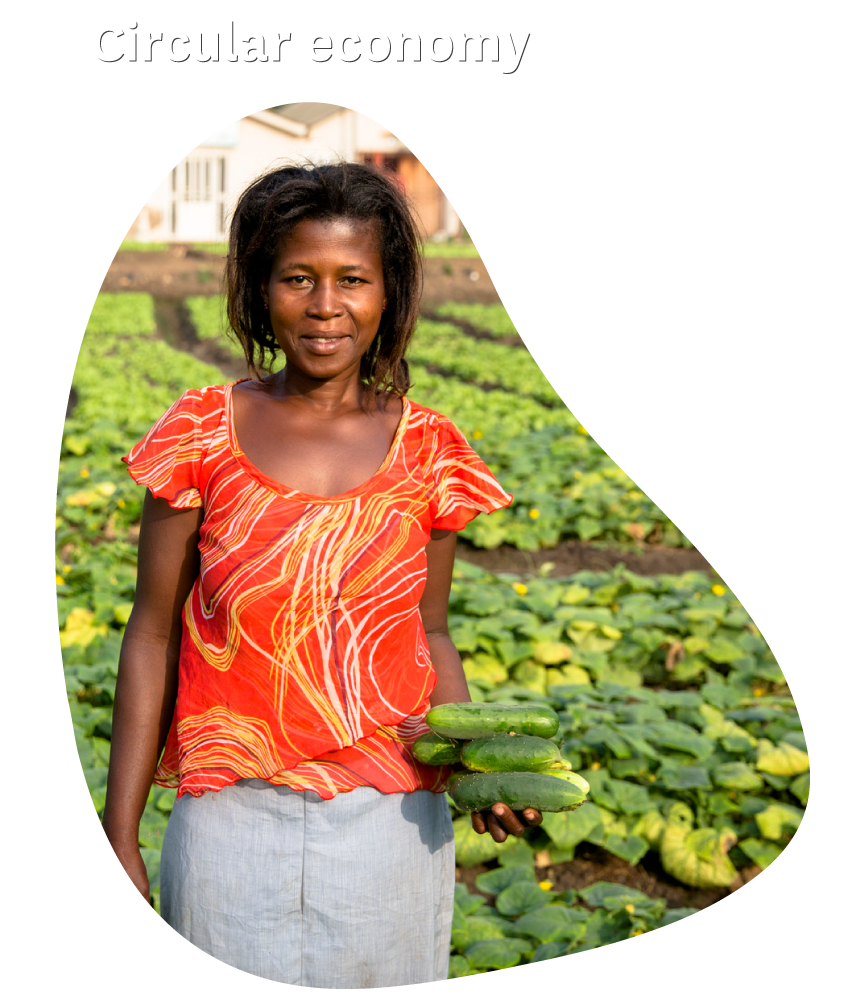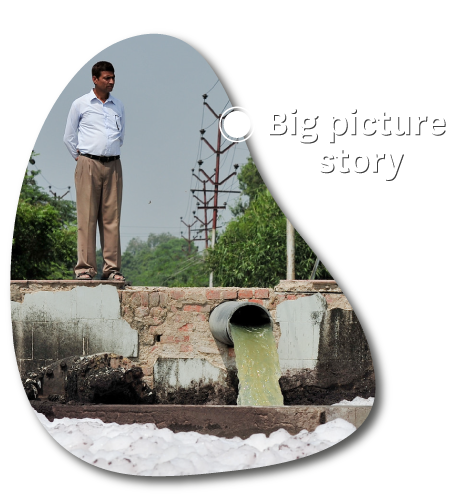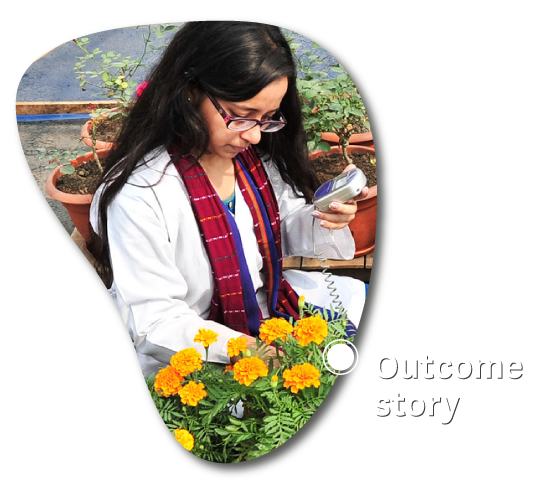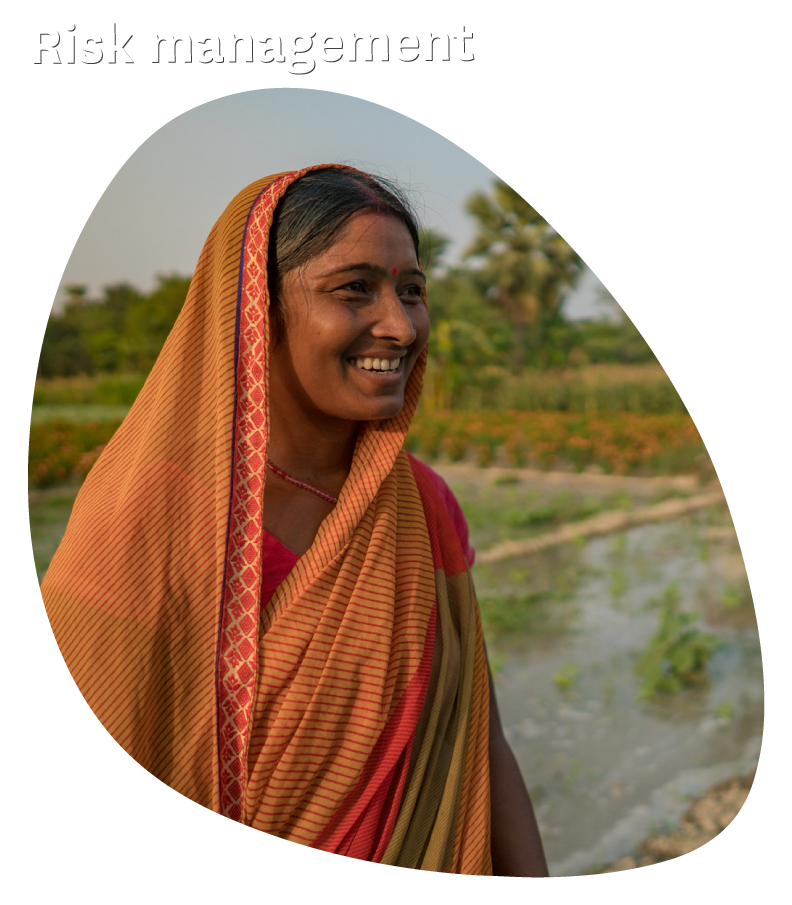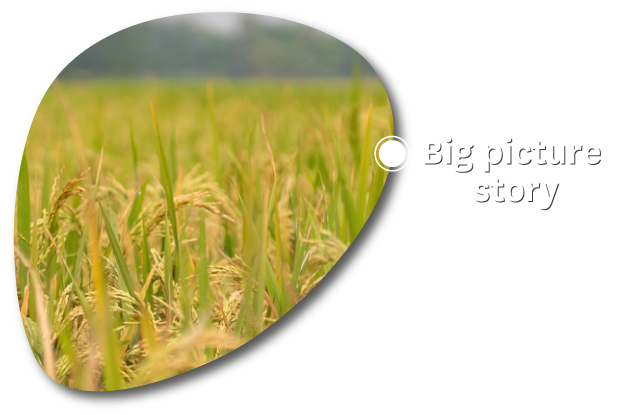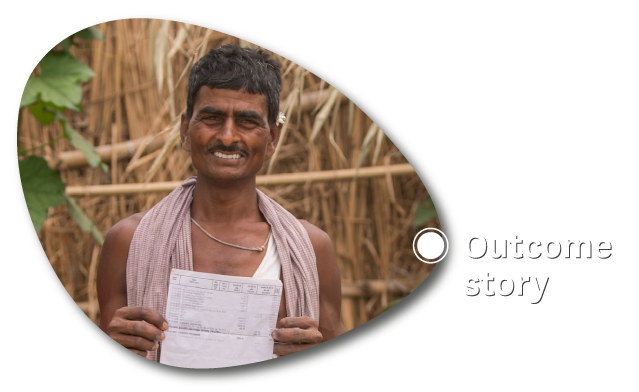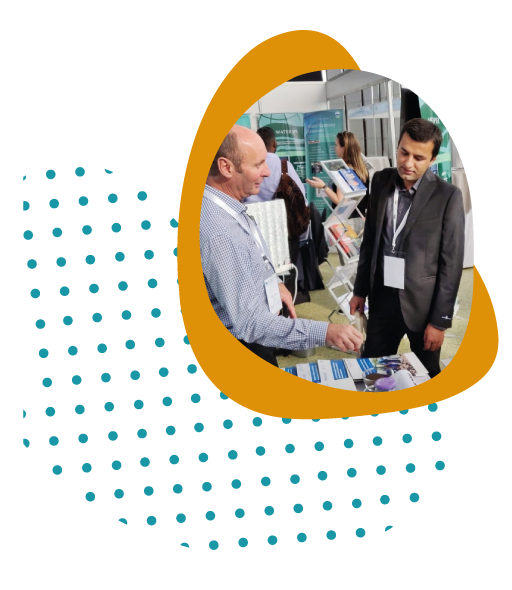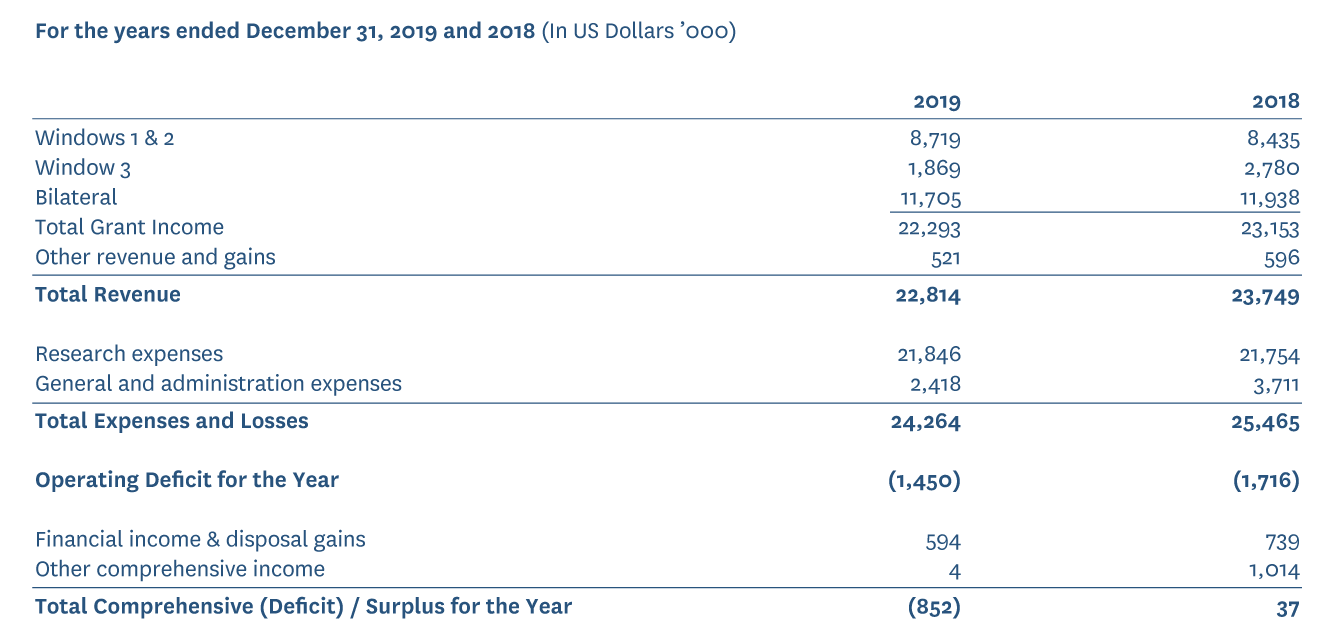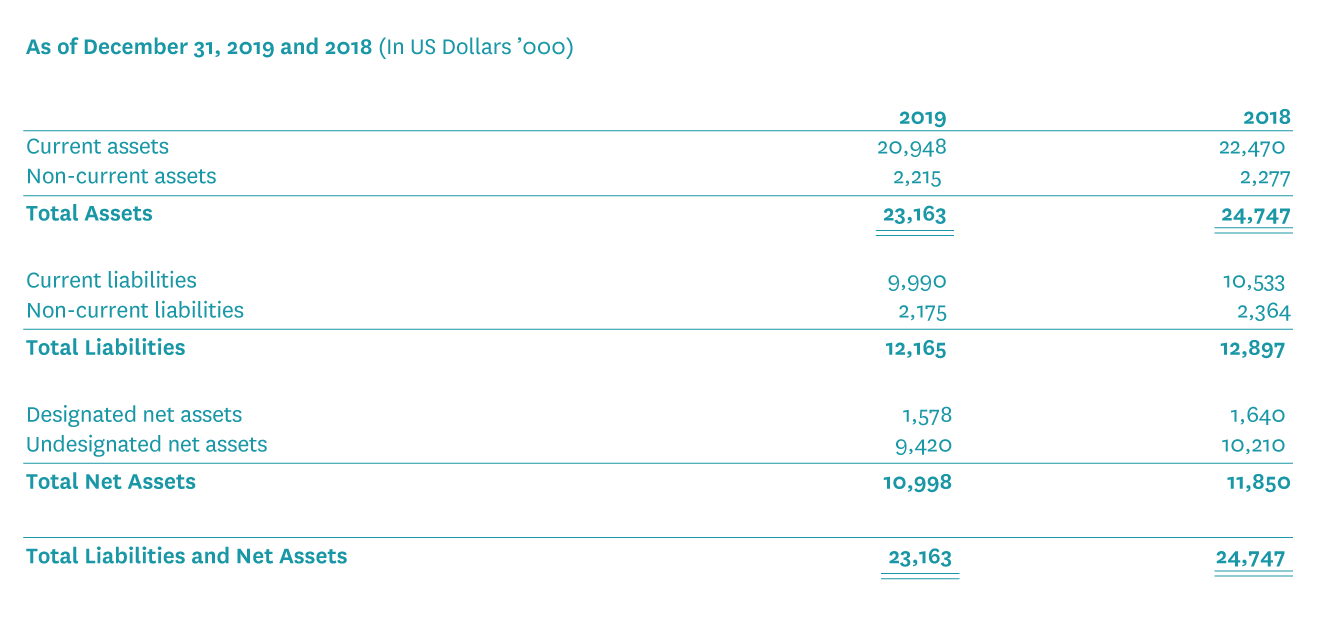Annual
Report
2019
Water systems underpinning
sustainable
development
Message from the Board Chair and Director General

Roberto Lenton
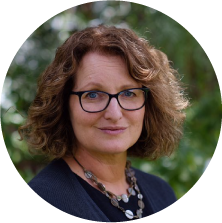
Claudia Sadoff
The year 2019 saw great progress across many of IWMI’s impact pathways and also the launch of our new strategy, which sets us on a path to achieving the vision of ‘a water secure world’. The new IWMI Strategy 2019-2023 is focused on water solutions for sustainable, climate-resilient development.
Global relevance
The indispensable role of water management in building the future we want is captured in Goal 6 of the United Nations Sustainable Development Goals (SDGs), and recognized in a variety of ambitious international policy statements and initiatives.
The Paris Agreement of the United Nations Framework Convention on Climate Change (UNFCCC)
The Paris Agreement of the United Nations Framework Convention on Climate Change (UNFCCC)
Global Commission on Adaptation (GCA) - 2018-2019
Sendai Framework for Disaster Risk Reduction 2015-2030
Ramsar Convention on Wetlands
Ramsar Convention on Wetlands
High Level Panel on Water report
'Making Every Drop Count'
New Urban Agenda
- UN General Assembly, 2016
Stories of change 2019
Awards and events
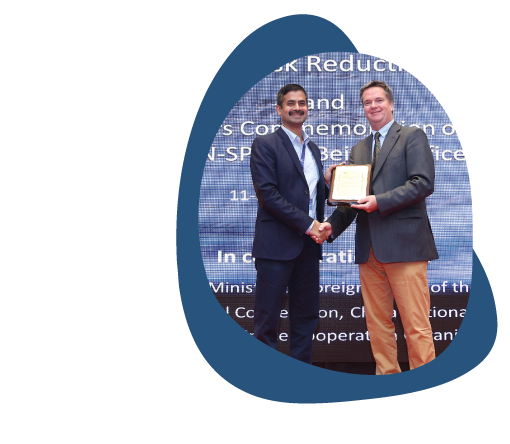
Major awards in 2019 |
|
| Details | Awardee |
| IWMI’s Dr. Miriam Otoo is the Winner of the 2019 International Water Association (IWA) Development Award for Research | Miriam Otoo |
| United Nations recognizes IWMI’s innovative satellite-based disaster risk management | Giriraj Amarnath |
| IWMI’s Alok Sikka receives prestigious achievement award | Alok Sikka |
Contribution to CGIAR Research Programs
A sustainable agricultural future? WLE brings us closer to some answers
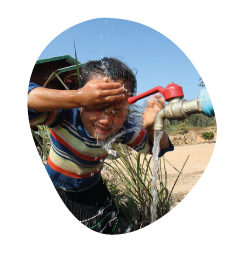
The world is experiencing a range of intertwined crises: health, climate, environment and poverty. These crises all link to the choices we make in our food production. How do we navigate these risks and balance the trade-offs? How can we enhance our environment and build equity through better agricultural decisions? How can we build a sustainable food future?
The IWMI-led CGIAR Research Program (CRP) on Water, Land and Ecosystems (WLE) and its 12 core partners are making real progress in finding answers to these questions. In 2019, WLE worked toward stronger food systems through better management of land, water and biodiversity – and the ecosystems that sustain people and planet. Through WLE, IWMI collaborates with a network of partners to transform agriculture from being a driver of environmental degradation to part of the solution.
In 2019, WLE was able to address all CGIAR impact areas through major policy, innovation and capacity contributions. These include evidence-based results that were documented in WLE’s rigorous Annual Reporting process
CGIAR Platform for Big Data in Agriculture
For the past few years, IWMI has participated in the CGIAR Platform for Big Data in Agriculture aimed at both data innovations and making CGIAR research data more FAIR in order to solve resource management problems faster, better and at greater scale. Learn More...
Climate Change, Agriculture and Food Security (CCAFS)
IWMI’s collaboration with the CGIAR Research Program on Climate Change, Agriculture and Food Security (CCAFS) progressed along several fronts with key strategic events and achievements. Learn More...
Fish Agri-Food Systems (FISH)
IWMI leads the research cluster on fish in multifunctional landscapes under the CGIAR Research Program on Fish Agri-Food Systems (FISH). Learn More...
Policies, Institutions, and Markets (PIM)
IWMI’s collaboration with the CGIAR Research Program on Policies, Institutions, and Markets (PIM) progressed along several fronts with key strategic events and achievements. Learn More...
CGIAR GENDER Platform
IWMI participated in the first meeting of the Generating Evidence and New Directions for Equitable Results (GENDER Platform), which was held in Rome, Italy. Learn More...
Financials
IWMI completed the first phase of implementation of the new Enterprise Resource Planning (ERP) software. This implementation included review and improvement of existing business processes. The Institute implemented the new management structure, which included restructuring the research programs and hiring of new country representatives. IWMI received an unmodified audit opinion on its 2019 annual financial statements. During 2019, the Institute contributed to a total of five CGIAR Research Programs and one CGIAR research support Platform, and managed 123 bilateral projects. IWMI complied with donor regulations and compliance requirements of its country offices.
Principal investment partners
IWMI research receives support from Funders contributing to the CGIAR Trust Fund
as well as grants from various organizations. We gratefully acknowledge
their support for our collaborative efforts to achieve water security across the developing world.
- African Development Bank (AfDB)
- Asian Development Bank (ADB)
- Asian Infrastructure Investment Bank (AIIB)
- Australian Centre for International Agricultural Research (ACIAR)
- Australian Water Partnership (AWP)
- Austrian Development Agency (ADA)
- Bajaj Allianz General Insurance Company Limited, India
- Bill & Melinda Gates Foundation
- Bundesministerium fur wirtschaftliche Zusammenarbeit und Entwicklung (BMZ) (Federal Ministry for Economic Cooperation and Development), Germany
- CGIAR Trust Fund
- Danish International Development Agency (Danida)
- Department for International Development (DFID), United Kingdom
- Department of Agriculture, Forestry and Fisheries (DAFF), South Africa
- Department of Foreign Affairs and Trade (DFAT), Australian Government
- Deutsche Gesellschaft für Internationale Zusammenarbeit GmbH (GIZ), Germany
- Economic and Social Research Council (ESRC), United Kingdom
- European Bank for Reconstruction and Development (EBRD)
- European Commission (EC)
- Food and Agriculture Organization of the United Nations (FAO)
- Government of the Netherlands
- Green Climate Fund (GCF)
- International Development Research Centre (IDRC)
- International Fund for Agricultural Development (IFAD)
- ITC Limited, India
- Livelihoods and Food Security Fund (LIFT), Myanmar
- Millennium Challenge Corporation (MCC), USA
- Ministry of Agriculture and Farmers’ Welfare, India
- Ministry of Agriculture and Rural Affairs, China
- Ministry of Agriculture, Forestry and Fisheries (MAFF), Japan
- Natural Environment Research Council (NERC), United Kingdom
- Netherlands Enterprise Agency (RVO)
- Norsk institutt for bioøkonomi (NIBIO) (Norwegian Institute of Bioeconomy Research), Norway
- Sir Dorabji Tata Trust and Sri Ratan Tata Trust
- Swedish International Development Cooperation Agency (Sida), Sweden
- Swiss Agency for Development and Cooperation (SDC), Switzerland
- United Kingdom Research and Innovation (UKRI)
- United Nations Children's Fund (UNICEF)
- United Nations Environment Programme (UNEP)
- United States Agency for International Development (USAID)
- United States Department of State
- Water Research Commission (WRC), South Africa
HOST COUNTRIES: Sri Lanka, Egypt, Ethiopia, Ghana, India, Laos, Myanmar, Nepal, Pakistan, South Africa, Uzbekistan
Partnerships
Our priority is to deliver research and knowledge services to, and through, partnerships.
Over decades of experience in research for development, IWMI has learned that no one achieves impact at scale by acting alone. Research contributions to innovation systems are only possible through partnerships. IWMI prioritizes partnerships that put in place the relationships needed to link research to local change and innovation, and to policy and institutional change at national, regional and global levels.
IWMI uses its unique and extensive field-based presence of water scientists, its long-term partnerships with governments, researchers, nongovernmental organizations (NGOs), the private sector and development practitioners, as well as its membership in CGIAR, to identify key partners and prioritize cooperation with coalitions at local, basin and national levels.
Our Locations
